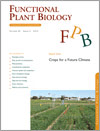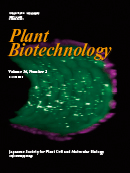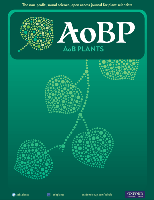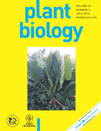
JOURNAL OF PLANT GROWTH REGULATION
metrics 2024
Connecting Researchers to the Future of Plant Science
Introduction
JOURNAL OF PLANT GROWTH REGULATION, published by SPRINGER, is a prestigious academic journal that has been at the forefront of advancing research in Agronomy and Plant Science since its inception in 1982. With an impressive impact factor and a 2023 Scopus ranking placing it in the Q1 category for both agronomy and crop science as well as plant science, this journal attracts a global audience of researchers, professionals, and students dedicated to understanding the complexities of plant growth and regulation. The journal covers a diverse range of topics relevant to plant physiology, biochemistry, and the environmental factors affecting plant development, thus providing a critical platform for sharing significant discoveries and insights within the agricultural and biological sciences. Researchers can access the journal through traditional subscriptions, ensuring a broad dissemination of high-quality research output. As it continues to shape the field into 2024 and beyond, JOURNAL OF PLANT GROWTH REGULATION remains an essential resource for anyone involved in plant science research and innovation.
Metrics 2024
 0.94
0.94 3.90
3.90 4.70
4.70 104
104Metrics History
Rank 2024
Scopus
IF (Web Of Science)
JCI (Web Of Science)
Quartile History
Similar Journals

JOURNAL OF PLANT BIOLOGY
Advancing the Frontiers of Plant ScienceJOURNAL OF PLANT BIOLOGY, published by SPRINGER HEIDELBERG, is a leading academic journal dedicated to advancing the field of plant science. With an impressive impact factor signifying its high citation rate and rigorous peer-review process, this journal ranks in the Q1 category within Plant Science, placing it among the top-tier periodicals in the discipline. Established in 1999, it has become an essential resource for researchers, professionals, and students seeking the latest findings and developments in plant biology. The journal fosters a collaborative environment for sharing innovative research, exploring ecological interactions, and understanding plant physiology, thereby contributing significantly to advancements in sustainable agriculture and environmental conservation. Its high Scopus ranking of 102 out of 516 in the category of Agricultural and Biological Sciences further underscores its relevance and impact within the scientific community. For those interested in cutting-edge research, JOURNAL OF PLANT BIOLOGY is a vital source of knowledge, offering insights that are crucial for the future of plant science.

Gesunde Pflanzen
Exploring Innovations in Agricultural ResearchGesunde Pflanzen is a prestigious peer-reviewed journal published by Springer, based in Germany. Specializing in the fields of agricultural and biological sciences, this journal has established itself as an essential resource for researchers, professionals, and students interested in plant health and pathology. With an impressive impact factor in the Q2 category, ranking 73 out of 221 within the general agricultural and biological sciences field (67th percentile as of 2023), Gesunde Pflanzen offers invaluable insights into current trends, challenges, and breakthroughs in plant research. The journal has been consistently publishing academic contributions since its inception in 1974, fostering advancements in agricultural practices and promoting sustainable plant health management strategies. While the journal does not currently offer open access options, its rigorous peer-review process ensures that published articles maintain high standards of scientific integrity and relevance. Researchers and professionals in the field are encouraged to engage with this journal to stay abreast of the latest findings and methodologies shaping the future of agriculture.

ACTA PHYSIOLOGIAE PLANTARUM
Illuminating the science behind plant growth and development.ACTA PHYSIOLOGIAE PLANTARUM, published by Springer Heidelberg, is a leading journal dedicated to advancing the fields of Agronomy, Plant Science, and Physiology. With an ISSN of 0137-5881 and an E-ISSN of 1861-1664, this esteemed publication has a significant global outreach, being based in Germany. The journal is recognized for its impactful contributions, currently holding a Q2 ranking in both Agronomy and Crop Science, as well as Plant Science, and a Q3 ranking in Physiology according to 2023 category quartiles. Its Scopus rankings reflect its reputable standing within the academic community, with notable placements in Agricultural and Biological Sciences, further highlighting its importance for researchers and professionals in the field. The objective of ACTA PHYSIOLOGIAE PLANTARUM is to foster robust discussions and disseminate innovative studies that enhance our understanding of plant physiology and its applications. Though not an open-access journal, it provides comprehensive access options for readers keen on exploring cutting-edge research that drives advancements in agricultural productivity and sustainability. Through its dedication to excellence, this journal continues to be a vital resource for advancing knowledge and practices in plant sciences.

FUNCTIONAL PLANT BIOLOGY
Exploring the Frontiers of Agronomy and EcologyFUNCTIONAL PLANT BIOLOGY is a prestigious academic journal published by CSIRO PUBLISHING, specializing in the dynamic fields of Agronomy and Crop Science as well as Plant Science. With an ISSN of 1445-4408 and an E-ISSN of 1445-4416, this journal provides a platform for innovative research that addresses key challenges in plant functional biology, ranging from genetics and physiology to ecological interactions. As evidenced by its impact factor and competitive rankings, including Q1 in Agronomy and Crop Science and Q2 in Plant Science, FUNCTIONAL PLANT BIOLOGY holds a significant place in the scientific community, ranking in the top tiers of Scopus for both categories. The journal supports open access options, ensuring that critical research is widely disseminated and accessible to researchers, professionals, and students around the globe. With a publication history spanning from 2002 to 2024, the journal continues to foster the advancement of plant science, making significant contributions to sustainable agricultural practices and ecological research in Australia and beyond.

Plant Biotechnology
Elevating Knowledge in Agronomy and Crop Science.Plant Biotechnology is a distinguished journal published by the Japanese Society for Plant Cell and Molecular Biology, committed to advancing the field of plant biotechnology through the dissemination of high-quality research. With an ISSN of 1342-4580, this journal caters to a global audience interested in agronomy, crop science, and plant molecular biology. The journal has achieved notable rankings, including Q2 in Agronomy and Crop Science and Q2 in Plant Science, underscoring its relevance and impact in these fields according to the latest 2023 metrics. Furthermore, it holds a respectable position within Scopus rankings across multiple categories, indicating its contribution to the academic community. Although it is not an open-access journal, its regular publications, spanning from 1997 to 2024, feature cutting-edge studies that explore innovative approaches and technologies in plant science. Researchers, professionals, and students will find Plant Biotechnology an essential resource for staying informed on significant advancements and trends in plant research.

BANGLADESH JOURNAL OF BOTANY
Bridging Science and Conservation in Plant StudiesBANGLADESH JOURNAL OF BOTANY is a prominent publication in the field of plant sciences, dedicated to advancing research and knowledge within the botanical community. Published by the BANGLADESH BOTANICAL SOC, this journal serves as a vital platform for researchers and scholars seeking to disseminate their findings related to plant biology, ecology, and conservation practices, particularly within the unique context of Bangladesh's diverse flora. With an ISSN of 0253-5416 and an E-ISSN of 2079-9926, the journal encompasses a wide scope of topics, reflecting interdisciplinary approaches in botanical research. Since its inception, with convergence periods from 1996 to 2001 and from 2003 to 2024, it has garnered recognition, positioned in the Q4 category in the Plant Science field with a ranking of #459/516 in Scopus, indicating its contribution to the field despite its developing impact. Operating within Bangladesh, at the UNIV DACCA DEPT BOTANY, the journal provides a crucial insight into the ecological and agricultural implications of plant studies in the region, catering to the needs of academics, professionals, and students eager to engage with contemporary botanical research.

Botanical Studies
Connecting Scholars in the World of BotanyBotanical Studies is a premier open-access journal published by Springer, dedicated to the field of botany and plant sciences. Since its establishment in 2006, the journal has championed innovative research and scholarship that explores diverse botanical topics ranging from plant systematics to ecology and conservation. With a commitment to broad accessibility, it promotes the dissemination of knowledge to researchers, professionals, and students worldwide. Botanical Studies fosters academic collaboration and dialogue, contributing significantly to the global botanical community. Its open-access policy allows unrestricted access to its high-quality, peer-reviewed content, ensuring that vital research is available to all. Join the growing community of scholars advancing botanical science through this essential publication, conveniently located at One New York Plaza, Suite 4600, New York, NY 10004, United States.

AoB Plants
Empowering discovery in plant biology and ecology.AoB Plants is a distinguished open-access journal published by Oxford University Press, dedicated to advancing the field of plant science. Since its inception in 2009, this journal has played a pivotal role in disseminating high-quality research that encompasses a wide range of topics including plant biology, ecology, and biotechnology. With an impressive impact factor and a ranking in the Q1 quartile for Plant Science, AoB Plants is recognized for its innovative contributions and scholarly rigor, ranking #129 out of 516 in the Scopus Agricultural and Biological Sciences category, placing it in the 75th percentile among its peers. By promoting open-access availability of research findings, the journal empowers researchers and practitioners alike, facilitating greater collaboration and knowledge sharing in the global scientific community. Situated in the heart of the United Kingdom, AoB Plants continues its commitment to providing a platform for pioneering research and developments in plant science, thus fostering a deeper understanding of the crucial roles that plants play in our ecosystems and economies.

PLANT BIOLOGY
Connecting Researchers in Plant BiologyPLANT BIOLOGY is a prestigious academic journal published by Wiley, dedicated to advancing knowledge in the fields of plant science, ecology, and evolutionary biology. With an impressive impact factor and ranking in the Q1 category for Ecology, Evolution, Behavior and Systematics, and Plant Science as of 2023, it stands at the forefront of research dissemination. The journal encompasses a broad scope of plant biology topics, providing a critical platform for researchers to share innovative findings and foster interdisciplinary collaboration. Available in both print (ISSN: 1435-8603) and online formats (E-ISSN: 1438-8677), it ensures accessibility through open access options. As a crucial resource for professionals, researchers, and students alike, PLANT BIOLOGY cultivates a deeper understanding of plant systems and their ecological significance, making it an essential addition to the library of anyone dedicated to the study of biology and the environment.

BIOLOGIA PLANTARUM
Innovative Research, Rooted in TraditionBIOLOGIA PLANTARUM, esteemed within the realms of horticulture and plant science, is a leading academic journal published by the Academy of Sciences of the Czech Republic, Institute of Experimental Botany. Established in 1959, this journal showcases innovative research and advancements in plant biology, focusing on a spectrum of topics including plant physiology, genetics, and biotechnology. With an impressive Scopus ranking in Horticulture (Rank #41/115) and Plant Science (Rank #221/516), it holds a significant place in the academic community, reflected in its Q2 and Q3 status within its respective categories. Although it is not open access, authors are encouraged to contribute to the growing body of knowledge that supports sustainable practices in agriculture and horticulture. Published in the Netherlands, BIOLOGIA PLANTARUM continues to foster collaboration and dialogue among researchers, professionals, and students dedicated to understanding and advancing plant sciences.